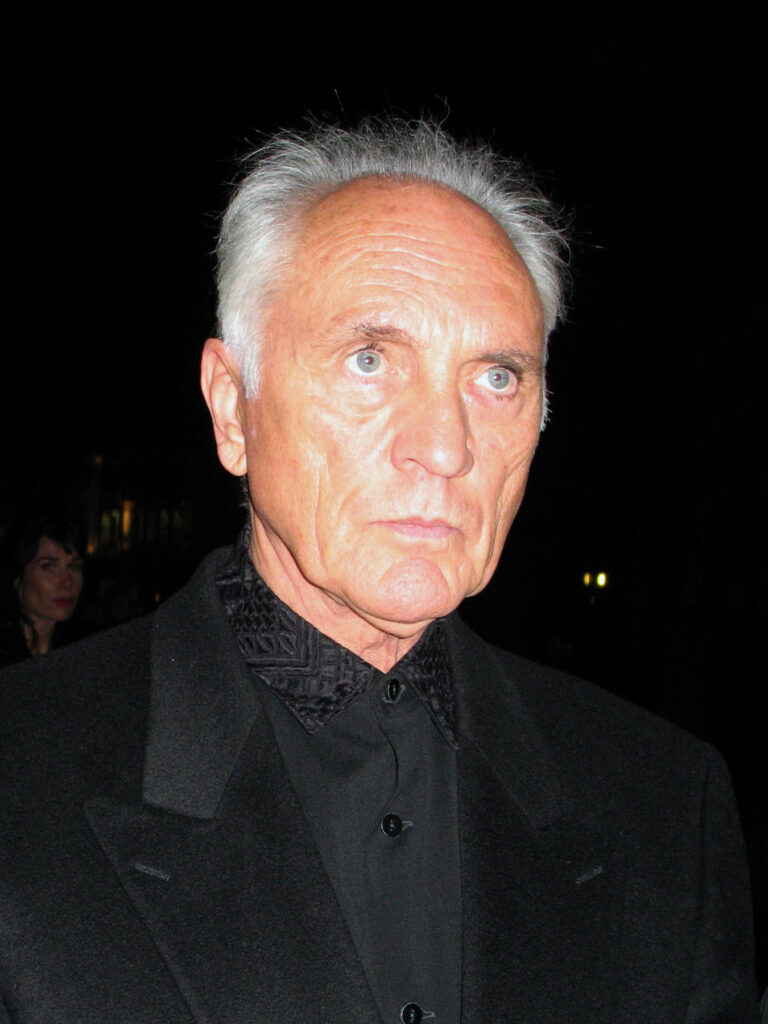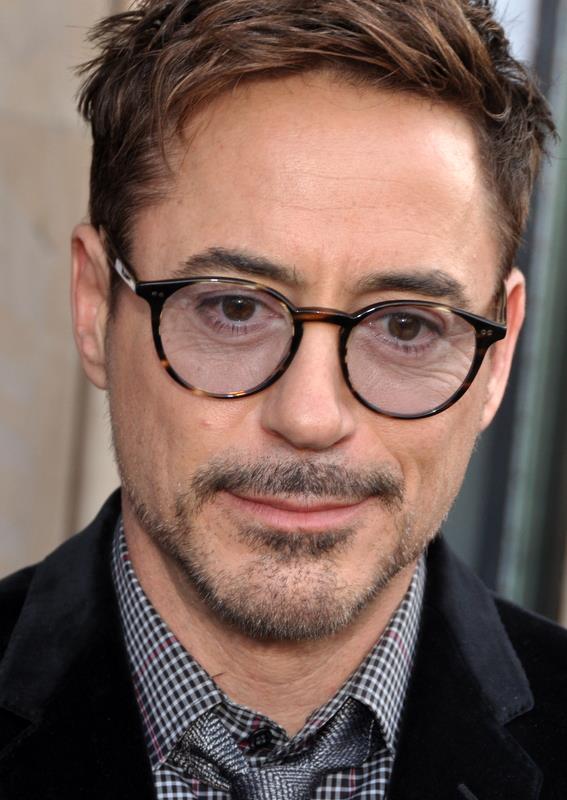
Robert Downey Jr. is more than just an actor; he’s a cinematic phenomenon, a story of resilience, reinvention, and undeniable talent that has captivated audiences for decades. From his early days as a member of the infamous “Brat Pack” to his world-changing portrayal of Tony Stark, and now an Oscar-winning performance in *Oppenheimer*, Downey Jr.’s career trajectory is nothing short of extraordinary. He possesses an almost chameleonic gift for disappearing into a dizzying variety of roles, demonstrating an impressive range that few actors can rival and consistently leaving audiences wanting more.
His journey has been marked by both soaring highs and challenging lows, including a well-publicized battle with drug abuse that often threatened to derail his promising career. Yet, through every personal trial and professional setback, his innate charisma, sharp intelligence, and sheer acting prowess have consistently shone through, leading to one of Hollywood’s most remarkable and applause-worthy comebacks. Downey Jr. has not only anchored the top-grossing film franchise of all time but has also been recognized as one of the highest-paid actors in Hollywood for three consecutive years, solidifying his status as a true A-list star and a global box-office titan.
As we celebrate his extraordinary contributions to film, it’s only fitting to take an in-depth look at some of the most compelling performances that have defined his illustrious career. This exploration will delve into 12 pivotal roles that showcase his unique ability to seamlessly transition from heart-wrenching drama to uproarious comedy, leaving an indelible mark on pop culture and resonating deeply with fans worldwide. Let’s embark on this journey, beginning with the first half of these unforgettable characters that have shaped the legend of RDJ, offering comprehensive and detailed analysis as befits his profound impact.
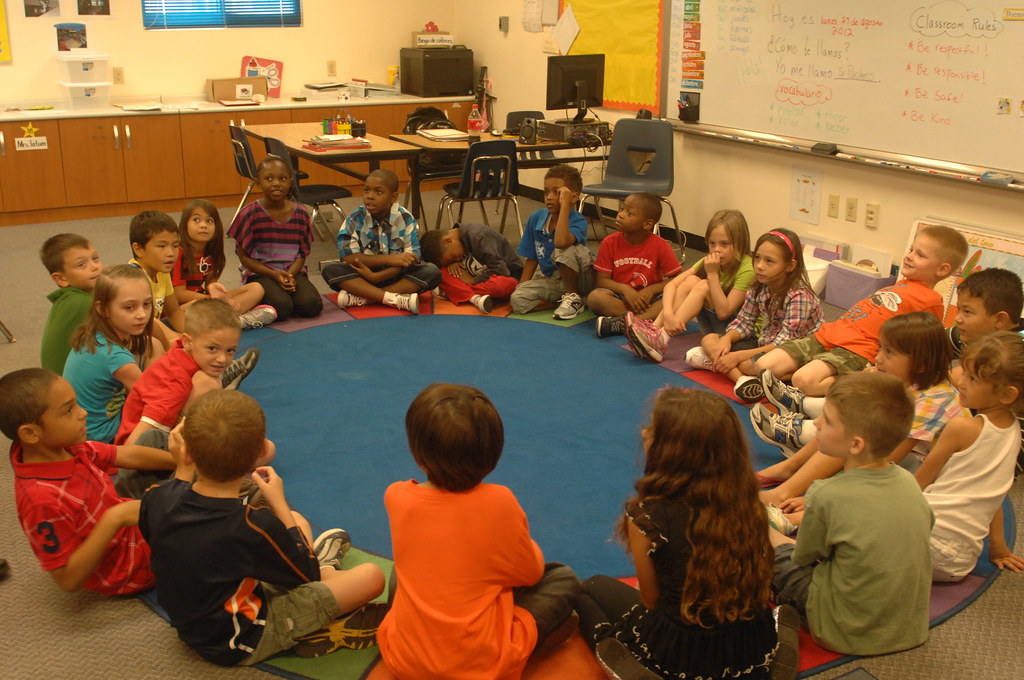
1. **Back to School (1986)** Stepping onto the scene as a young adult finding his footing, Robert Downey Jr. landed one of his first major roles in the Rodney Dangerfield campus comedy, *Back to School*. Here, he introduced audiences to Derek Lutz, the quippy, partying best friend of the main character’s son, Jason Melon (played by Keith Gordon). Even in a supporting capacity, Downey Jr. made an immediate impression, injecting the film with a youthful, irreverent energy that perfectly complemented Dangerfield’s signature brand of humor.
“While he doesn’t play Dangerfield’s character’s son (that would be Keith Gordon), Downey got to play Derek Lutz, the quippy, partying best friend of Gordon.” This role was more than just comic relief; it established Downey Jr. as a distinctive presence among the emerging young talent of the 1980s. He was briefly a cast member of *Saturday Night Live* in 1985 and appeared in *Weird Science* the same year, but *Back to School* provided a more substantial platform for his budding comedic chops.
His association with the group of young actors condescendingly called “The Brat Pack,” which included stars like Molly Ringwald and Anthony Michael Hall, began to solidify around this time. Downey Jr.’s performance in *Back to School* was emblematic of the era’s teen comedies, where quick wit and energetic performances were highly valued. He demonstrated an early aptitude for sharp dialogue delivery and an effortlessly cool demeanor that would become signature elements of his acting style.
The film itself, a product of the silly, high-concept comedies prevalent in the 80s – culminating, famously, with Dangerfield winning a diving competition – provided a lighthearted backdrop for Downey Jr. to shine. Derek Lutz, with his charismatic rebellious streak, offered a glimpse into the dynamic screen presence that would eventually propel him to global stardom. It was a foundational role, showcasing his ability to enhance an ensemble and hint at the deeper comedic and dramatic capabilities he possessed.
Read more about: Beyond Basic: 10 Rad ’80s Movies Only the Cool Kids Still Rave About (Seriously, Rewatch These Classics!)

2. **Less Than Zero (1987)** In stark contrast to the frothy comedy of *Back to School*, Downey Jr. delivered a groundbreaking performance in *Less Than Zero*, a dark and sordid drama based on Bret Easton Ellis’s chilling novel. This film served as the crucible where he first demonstrated his serious dramatic chops, tackling a role that was emotionally raw and deeply challenging. His portrayal of Julian, a wealthy young man who spirals catastrophically into heroin addiction, remains one of his most powerful and unsettling early works.
“He plays Julian, who comes from money and lives a life of leisure, but collapses into addiction.” This character was not just a role; for Downey Jr., it became a haunting premonition. In a candid 2024 career retrospective at the Santa Barbara International Film Festival, he revealed the profound personal connection, stating the role “was a bit of a Ghost of Christmas Future,” acknowledging the real-life struggles with addiction he would later confront. This vulnerability infused his performance with an authenticity that was both captivating and tragic.
Starring alongside Andrew McCarthy, who played his best friend Clay, Downey Jr. imbued Julian with a complex mixture of charm, desperation, and profound self-destruction. The film, directed by Marek Kanievska, unflinchingly depicted the harsh realities of drug addiction and its devastating impact, not only on the user but on their circle of loved ones. Downey Jr.’s performance was a masterclass in conveying the slow, agonizing decay of a privileged life consumed by substance abuse, making the character’s plight acutely palpable.
Critics were overwhelmingly captivated by his raw and unflinching performance. Janet Maslin of The New York Times notably referred to it as “desperately moving,” highlighting the profound emotional resonance he achieved. *Less Than Zero* might have been a mixed bag critically, but Downey Jr.’s work stood out as a clear demonstration of an actor capable of immense depth and a willingness to explore the darkest corners of the human psyche. It was a critical turning point, solidifying his reputation as a serious dramatic actor with extraordinary potential.
Read more about: Giorgio Armani, Fashion’s Master of the Power Suit, Dies at 91, Leaving an Indelible Mark on Global Style
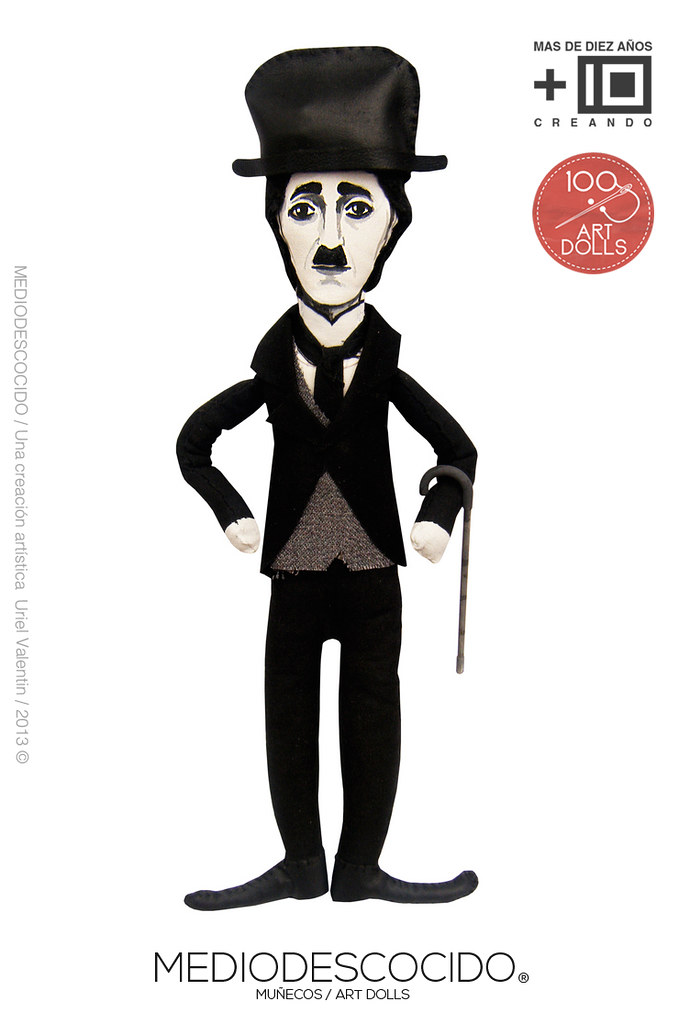
3. **Chaplin (1992)** To firmly establish his bona fides as a serious adult dramatic actor, Robert Downey Jr. undertook one of the most ambitious roles of his early career: portraying the legendary silent film star Charlie Chaplin in Richard Attenborough’s prestige biopic, *Chaplin*. This demanding role required an incredible commitment, asking Downey Jr. to embody the iconic figure from his youth as a struggling vaudeville performer to his twilight years as a celebrated yet controversial cinematic genius. It was a true test of his range, encompassing physical comedy, dramatic weight, and historical accuracy.
“Charlie Chaplin was probably the biggest movie star of his generation, and Downey got to play him from youth to old age, under the guidance of Gandhi director Richard Attenborough, no less.” Downey Jr.’s transformation into Chaplin was eerily uncanny, extending beyond a mere physical resemblance. He meticulously captured Chaplin’s distinctive mannerisms, the blithe spirit that fueled his comedic brilliance, the cunning charm that captivated audiences, and the profound well of sadness that often underpinned his genius. He delved into Chaplin’s vagabond upbringing in music halls, his mentally-ill mother (portrayed by Chaplin’s real-life daughter, Geraldine Chaplin), and his complicated, often controversial, romantic entanglements with too-young women.
The film itself, while commercially unsuccessful and receiving mixed reviews for its sprawling screenplay, served as an undeniable showcase for Downey Jr.’s extraordinary talent. His performance was lauded across the board by critics and peers alike, who recognized the immense challenge he had overcome. This widespread critical acclaim culminated in significant industry recognition: “Downey came off well: He earned an Oscar nomination for Best Actor, and won the BAFTA in the same category.” This validated his status as a formidable dramatic actor capable of immersive, transformative performances.
The meticulous production design and authentic period recreation provided a rich backdrop for Downey Jr.’s character study. His ability to convey Chaplin’s evolution, both personally and professionally, from a struggling artist to a global icon, cemented his reputation as an actor who could tackle monumental biographical roles with remarkable success and sensitivity. *Chaplin* remains a pivotal film in his career, a testament to his dramatic prowess and an early indication of the profound depth he could bring to complex historical figures.
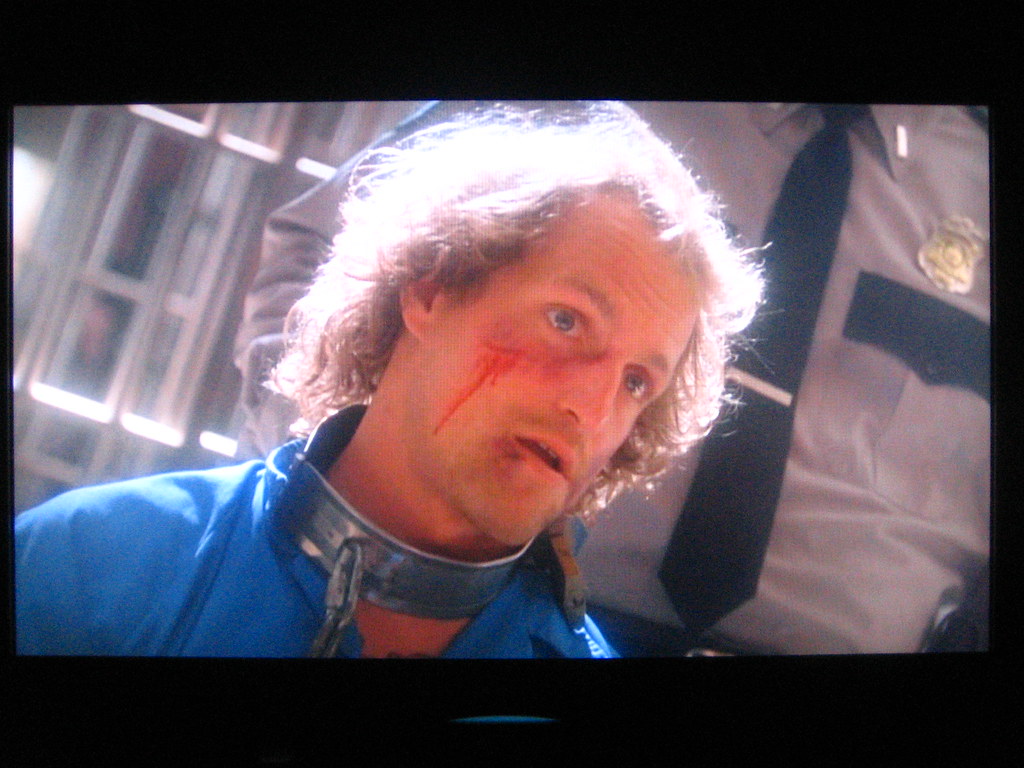
4. **Natural Born Killers (1994)** In a radical departure from the biopic realism of *Chaplin*, Robert Downey Jr. plunged headfirst into the chaotic and controversial world of Oliver Stone’s *Natural Born Killers*. “Natural Born Killers is an Oliver Stone film based on a story that originated with Quentin Tarantino, so you know it’s bananas.” In this visually assaulting and savagely satirical film, Downey Jr. delivered an unforgettable performance as Wayne Gale, an Australian tabloid journalist who capitalizes on the notoriety of mass murderers Mickey and Mallory Knox (Woody Harrelson and Juliette Lewis).
Downey Jr.’s character is central to the film’s scathing critique of media sensationalism and society’s perverse fascination with violence. Wayne Gale is the sleazy, opportunistic host of a true-crime show, “American Maniacs,” who elevates Mickey and Mallory into sordid celebrities. “While Downey was not one of the two thrill-killing lovers, he popped as the third billed as Wayne Gale, an Australian tabloid journalist who is primarily responsible for turning the Knoxes into sordid celebrities. He’s the highlight of the movie.” His performance is a flamboyant, over-the-top tour de force, perfectly matching the film’s hyper-stylized and often grotesque aesthetic.
Gale’s relentless pursuit of a story, even going so far as to conduct a live interview with Mickey during a chaotic prison riot, highlights the film’s powerful indictment of a media landscape that profits from tragedy and violence. Downey Jr. infused Gale with a memorable blend of grotesque arrogance, theatricality, and a disturbing lack of moral compass, making him an emblem of the very sensationalism the movie satirizes. His Australian accent, combined with his manic energy, ensured that Gale stood out vividly amidst the film’s ensemble of deranged characters.
“Even so, Natural Born Killers was a bit hit and embedded itself into the culture to a degree.” Despite the film’s polarizing reception and Quentin Tarantino’s famed disavowal of the on-screen version, Downey Jr.’s performance as Wayne Gale was widely praised as a standout. It showcased his incredible versatility and willingness to take major creative risks, proving he could excel in dark, satirical, and visually experimental material, making a significant impact in a supporting role that many consider the highlight of the entire experience.
Read more about: Beyond the Hype: 14 Celebrities Who Lost Their Shine And Are Seriously Due For A Reality Check

5. **U.S. Marshals (1998)** Following the massive success of *The Fugitive*, which earned Tommy Lee Jones an Oscar, the highly anticipated sequel, *U.S. Marshals*, brought Jones back as the relentless Sam Gerard. Robert Downey Jr. joined this established team as DSS Special Agent John Royce, a new, key addition to Gerard’s crew. This role arrived at a critical juncture in Downey Jr.’s career, providing him with a notable, high-profile part in a major studio film when he was “starting to slip from the spotlight” due to well-documented personal struggles.
“The two key new additions to the cast? Wesley Snipes as the fugitive, and Downey as DSS Special Agent John Royce, who joins Gerard’s team, but may be hiding something.” Downey Jr. was tasked with portraying a character shrouded in ambiguity, whose true intentions and loyalties are constantly under suspicion. His performance masterfully conveyed a facade of competence and dedication, subtly hinting at the deception lurking beneath. This complexity added a crucial layer of suspense and internal conflict to the narrative, contrasting sharply with the straightforward good-guy dynamic of Gerard’s original team.
Indeed, the film’s central twist revolves around Royce’s hidden agenda. “Yeah, spoilers we guess: Royce is hiding something. It’s a sequel to The Fugitive! Of course the presumed killer didn’t do it.” Downey Jr.’s ability to play both sides – the diligent agent and the treacherous insider – showcased his capacity for nuanced character work within the framework of an action-thriller. He skillfully maintained the audience’s uncertainty about Royce for a significant portion of the film, making the eventual reveal all the more impactful.
While “U.S. Marshals is fine” and generally considered a step down from its critically acclaimed predecessor, it undeniably offered Downey Jr. a substantial role that allowed him to maintain a presence in mainstream cinema during a turbulent period. It demonstrated that his compelling screen presence and ability to embody complex characters were undiminished. The film served as a valuable platform, ensuring he remained a recognizable and engaging actor, foreshadowing his eventual, more triumphant return to the forefront of Hollywood.
Read more about: Unpacking ‘Beloved’: The Profound Themes and Enduring Legacy of Toni Morrison’s Masterwork
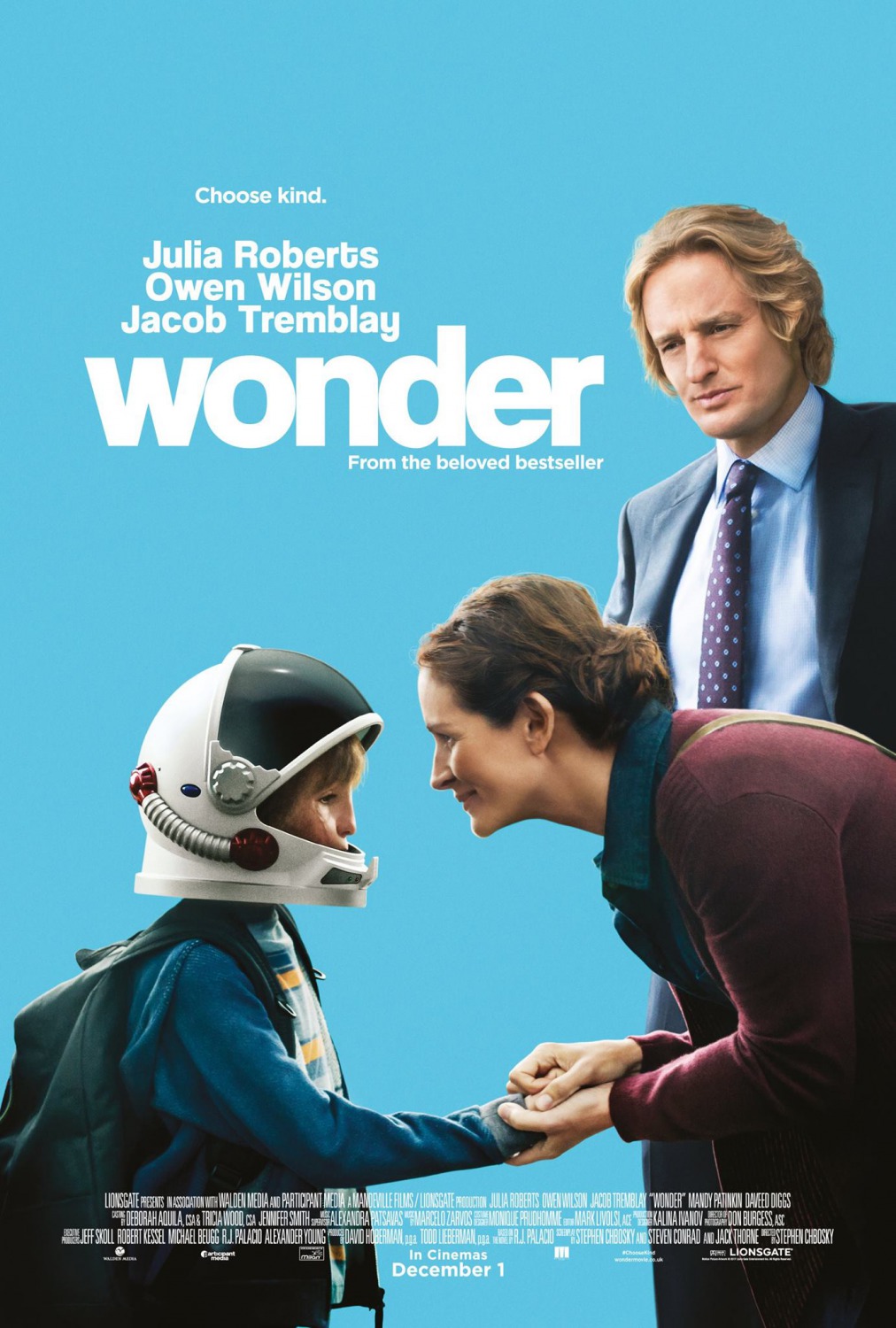
6. **Wonder Boys (2000)** *Wonder Boys* holds a significant place in Robert Downey Jr.’s filmography as “Downey’s last notable film role before his comeback.” In this acclaimed adaptation of Michael Chabon’s novel, directed by Curtis Hanson, Downey Jr. delivered a standout supporting performance as Terry Crabtree, the witty, flamboyant, and perpetually exasperated editor to Michael Douglas’s struggling novelist, Grady Tripp. Though not the central star, Downey Jr. contributed profoundly to the film’s rich tapestry of quirky characters and academic anxieties.
“In this adaptation of a Michael Chabon novel, Michael Douglas stars as a college professor and novelist who is struggling with his writing work, and Tobey Maguire (pre-Spider-Man) plays a promising, troubled student.” Downey Jr.’s role as the publisher eagerly awaiting Grady’s elusive second novel allowed him to inject his signature charisma and sharp comedic timing into the narrative. He was “good in a flashy, if limited, role,” maximizing every scene with his distinctive energy and a knack for memorable dialogue delivery, making Crabtree an indelible presence.
At this point in his career, Hollywood was hesitant to rely on Downey Jr. to carry a film, reflecting the challenges he was facing outside of his professional life. “That’s about what Hollywood had to offer the actor at that point. He couldn’t be called upon, or relied upon, to carry a film.” Yet, even under these circumstances, he proved his ability to elevate an ensemble cast, demonstrating that his undeniable screen presence and comedic flair were still very much intact, even if offered “in fitful doses.”
*Wonder Boys* is lauded for its honest and authentic portrayal of campus life and the creative struggles of its characters. Bob Dylan won an Oscar for his original song “Things Have Changed,” underscoring the film’s critical appeal. Downey Jr.’s portrayal of Crabtree, with his impeccably tailored suits and dry wit, provided crucial moments of levity and intelligence, making a lasting impression. This film, in many ways, acted as a quiet testament to his enduring talent, hinting strongly at the incredible resurgence that was just on the horizon. His charisma, as the context states, was undeniably still there, biding its time for a grander stage.
Having explored the formative years and early breakthroughs of Robert Downey Jr.’s illustrious career, it’s time to shift our focus to the exhilarating second act: his triumphant return to the spotlight and his ascent to global superstardom. This section delves into the iconic roles that not only solidified his status as a cinematic legend but also redefined his legacy, showcasing his unmatched charisma and an ability to captivate audiences on an unprecedented scale. These are the performances that truly brought him back, catapulting him to the top of Hollywood and firmly cementing his place in pop culture history.
Read more about: Beyond the Leads: 15 Scene-Stealing Supporting Performances That Undeniably Outshined the Stars

7. **Kiss Kiss Bang Bang (2005)** Often hailed as the definitive “rebirth” of Robert Downey Jr.’s film career, *Kiss Kiss Bang Bang* was an absolute game-changer. Directed by Shane Black, a name he would famously reunite with, this neo-noir black comedy finally placed Downey Jr. back in a lead role where his unique brand of wild charm could truly flourish. He plays Harry Lockhart, a small-time criminal who, in a stroke of accidental luck, stumbles into a Hollywood audition while evading the police.
What ensues is a hilariously complex plot where Harry, mistaken for an actor, begins to learn the ropes of detective work from a real private eye, Gay Perry (Val Kilmer). This unlikely duo finds themselves embroiled in a genuine mystery, twisting and turning with every scene, in a self-referential style that pays homage to classic detective fiction. Critics rightly raved about his performance, describing it as everything from “one of his most enjoyable” to a “quicksilver delight,” emphasizing that his rapport with co-star Val Kilmer was “well worth the price of admission.”
The film was more than just a critical darling; it was popular and proved a significant success for both Downey Jr. and Shane Black, marking Black’s directorial debut with a resounding win. *Kiss Kiss Bang Bang* showcased Downey Jr.’s renewed vigor and undeniable comedic timing, proving that the spark that had always made him a captivating presence was not only back but burning brighter than ever. It was a sly, sleek, and utterly entertaining piece of cinema that had fans returning to unlock its many mysteries, and it was a pivotal stepping stone to the monumental roles that lay just ahead.
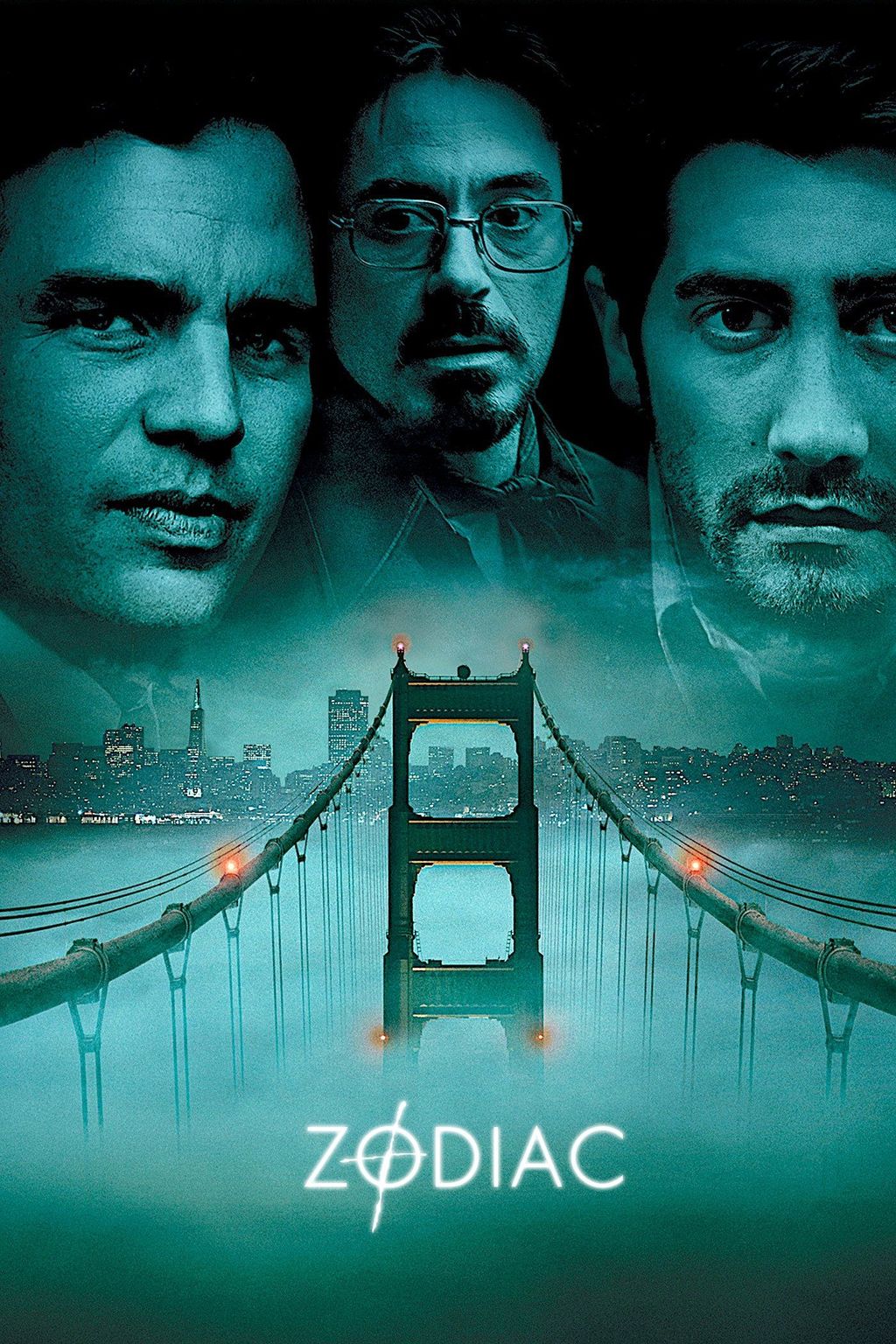
8. **Zodiac (2007)** In a dramatic turn following his triumphant comeback in *Kiss Kiss Bang Bang*, Robert Downey Jr. delivered a profoundly nuanced performance in David Fincher’s acclaimed crime thriller, *Zodiac*. This lengthy, ensemble piece delved into the chilling real-life mystery of the Zodiac Killer, a case that terrified Northern California in the late 1960s and early 1970s. Many consider *Zodiac* to be Fincher’s finest work and one of the best films of the 2000s, a testament to its meticulous detail and gripping narrative.
Downey Jr. took on the role of Paul Avery, a real-life San Francisco journalist who extensively covered the Zodiac murders. His character is presented as initially reluctant to entertain the theories of political cartoonist Robert Graysmith (played by Jake Gyllenhaal), but soon becomes deeply ensnared in the bleak and obsessive quest to unfold the story and crack the mystery. Avery’s life unravels as he becomes a target of the Zodiac, a descent that Downey Jr., “able to call upon a lot of his own personal demons,” excelled at portraying with raw authenticity.
The film skillfully intertwines two narratives: a newspaper drama centered on Avery and Graysmith’s obsession, and a police procedural tracking the killer by detectives (Mark Ruffalo and Anthony Edwards). Downey Jr.’s impactful performance as a man consumed by a case he can’t crack added immense depth, making him a highlight within an already stellar ensemble. It’s a terrifying and riveting examination of one of history’s most perplexing unsolved mysteries, allowing Downey Jr. to once again demonstrate his capacity for intense, character-driven drama.
While *Zodiac* stunningly received no Oscar nominations, a fact many fans still consider “criminal,” Downey Jr.’s portrayal of Paul Avery remains one of his finest. It showcased his ability to inhabit complex, flawed characters, bringing a palpable sense of suffering and obsession to the screen. His work here solidified that his dramatic chops were not only fully restored but had matured, setting the stage for his imminent superstardom in the years to come.
Read more about: Top Horror Films That Will Terrify You Even More Knowing They’re Based on Unbelievable True Events
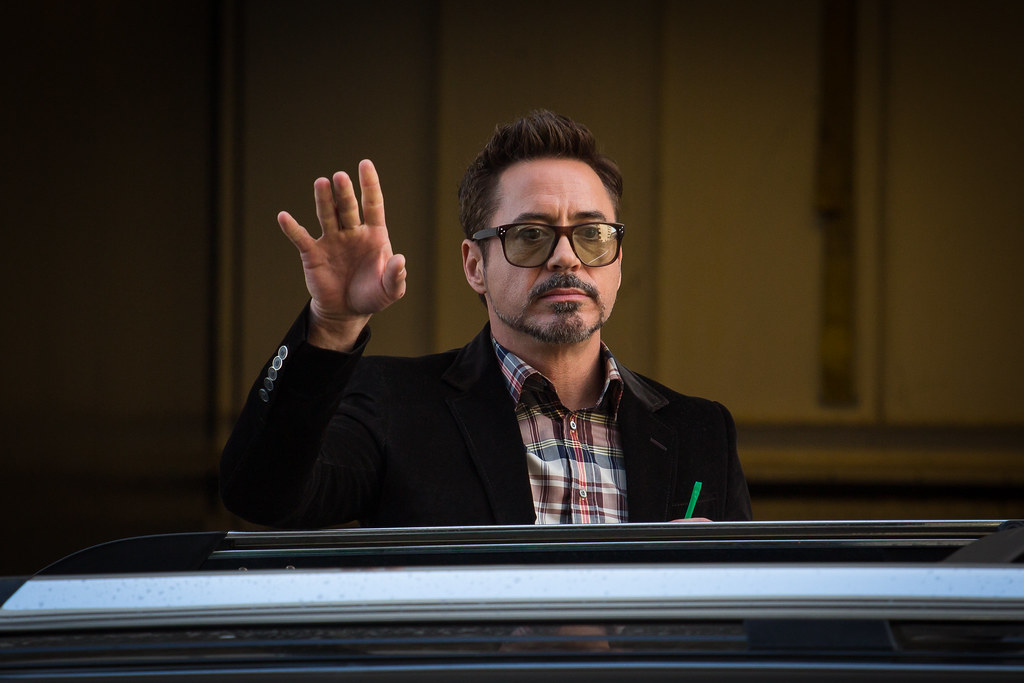
9. **Tony Stark, aka Iron Man (2008-2019)** Without question, the role of Tony Stark, also known as Iron Man, stands as one of the most iconic and defining performances of the last two decades for any actor. For Robert Downey Jr., it was his biggest and arguably best role, marking an unprecedented level of fame and success he had never before achieved, firmly catapulting him to global superstardom after years of personal and professional challenges. *Iron Man* in 2008 was more than just a movie; it was the kick-off for Marvel Studios’ plot for world domination of the movie market.
Downey Jr. embodied Tony Stark, the fast-talking, narcissistic billionaire engineer, with such perfect fusion that it’s difficult to imagine anyone else in the role. The character, initially one of Marvel’s lesser-known heroes to mainstream audiences, became a household name thanks to Downey Jr.’s charisma and charm. He masterfully brought to life Stark’s journey from a captive in an Afghan cave who develops a weaponized suit, to a superhero battling forces of evil back home, all while maintaining that signature wit. Director Jon Favreau wisely kept things “light, witty, and entertaining, allowing his star’s personality to shine through that armor mask.”
This single performance laid the entire foundation of the Marvel Cinematic Universe (MCU), a cinematic achievement that spawned countless superhero flicks and two direct sequels, *Iron Man 2* (2010) and *Iron Man 3* (2013). More than that, Downey Jr. anchored the sprawling *Avengers* series, reprising his role as Iron Man to team up with Captain America, the Hulk, Thor, and many other heroes against increasingly sinister villains like Loki and Thanos. He played Tony Stark in 11 MCU movies over 11 years, leading the top-grossing film franchise of all time.
Reflecting on the role, Downey Jr. candidly shared, “I will never be as cool as Tony Stark, but it was so great to be associated with someone like that for a while, you know? And then it wore off.” However, his indelible mark on the character, shaping the witty, brilliant, and cocky scientist/superhero, is undeniable. Tony Stark’s journey, from self-centered genius to selfless hero, resonated profoundly with audiences, solidifying Downey Jr. as a true A-list star and one of the highest-grossing box-office stars in the world.

10. **Tropic Thunder (2008)** In the same year he debuted as Tony Stark, Robert Downey Jr. took on arguably one of the riskiest and most brilliant roles of his career in Ben Stiller’s action/comedy *Tropic Thunder*. Playing Kirk Lazarus, a blonde-haired, blue-eyed Australian method actor who undergoes skin pigmentation surgery to portray an African-American platoon leader in a war movie, Downey Jr. embraced a role that could have easily been cringe-inducing. Instead, he delivered an Oscar-nominated performance that was nothing short of hilarious.
Lazarus, an actor so dedicated to his craft that he refuses to break character even when not filming, becomes a profound send-up of racial stereotypes and the often-absurd egotism of movie stars. Downey Jr.’s portrayal, skillfully navigating the comedic tightrope, showcased his tremendous range and willingness to take major creative risks. The film itself, about a group of narcissistic actors lost in the jungle, performed surprisingly well at the box office and garnered an Academy Award nomination for Downey Jr. as Best Supporting Actor.
Downey Jr. himself humorously recalled the risk at his Santa Barbara International Film Festival retrospective. He joked about knowing either he or Ben Stiller (who also wrote, directed, and starred in the film) would get into trouble for their respective roles – Stiller for playing an actor portraying a mentally challenged man in “Simple Jack.” Downey Jr. quipped that he “emerged unscathed,” while Stiller “took the bigger hit,” indicating that Oscar voters and audiences clearly understood the satirical intent behind his audacious performance.
His turn as Kirk Lazarus wasn’t just funny; it was a masterclass in comedic timing and character immersion, demonstrating an actor at the height of his powers. It proved that even as he was becoming the face of the MCU, Downey Jr. was still capable of delivering incredibly bold and memorable performances that pushed boundaries and earned him significant critical acclaim, including the Oscar nomination, though he ultimately lost to Heath Ledger for *The Dark Knight*.
Read more about: You Won’t Believe How These 12 Supporting Characters Stole The ENTIRE Movie!
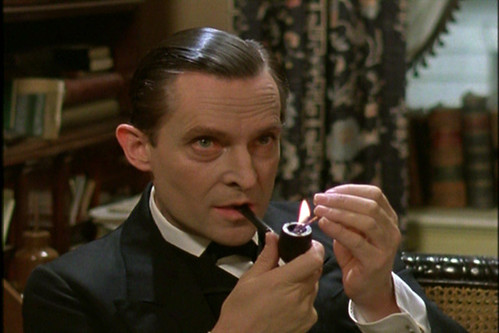
11. **Sherlock Holmes (2009)** The year after his groundbreaking performance as Iron Man, Robert Downey Jr. continued his streak of revitalizing iconic characters by stepping into the shoes of one of the most legendary literary figures of all time: Sherlock Holmes. In Guy Ritchie’s 2009 period action film, Downey Jr. put his own distinctive spin on the Sir Arthur Conan Doyle character, bringing the iconic sleuth to the big screen for a new generation of moviegoers with a dynamic and action-packed portrayal.
This wasn’t your father’s Sherlock Holmes; this iteration used his body as much as his brilliant mind to solve mysteries, engaging in hyper-kinetic action sequences and dazzling special effects. Downey Jr. clearly had fun as Sherlock, and his chemistry with Jude Law, who played a superb Dr. Watson, was undeniable. The plot saw Holmes and Watson attempting to thwart the evil Lord Blackwood from seizing control of London, delivering a thrilling and enjoyable cinematic experience that garnered him almost universal praise.
Downey Jr.’s portrayal was so successful that he won a Golden Globe as Best Comedy/Musical Actor, further cementing his ability to dominate both action and comedic genres. The film itself received two Academy Award nominations for Best Original Score and Best Art Direction, highlighting its impressive production values. The film was also successful enough to earn a sequel in 2011, *Sherlock Holmes: A Game of Shadows*, with Downey Jr. reprising the role, and rumors persist about a third installment.
This role underscored that Downey Jr.’s franchise entertainment was not limited to the MCU. He brought a fresh, energetic, and undeniably brilliant interpretation to a character that many actors have tackled over the years. His performance as Sherlock Holmes proved that his unique blend of intelligence, wit, and physical prowess made him perfectly suited for big-screen adventures, confirming his status as a versatile leading man capable of carrying major non-superhero franchises.
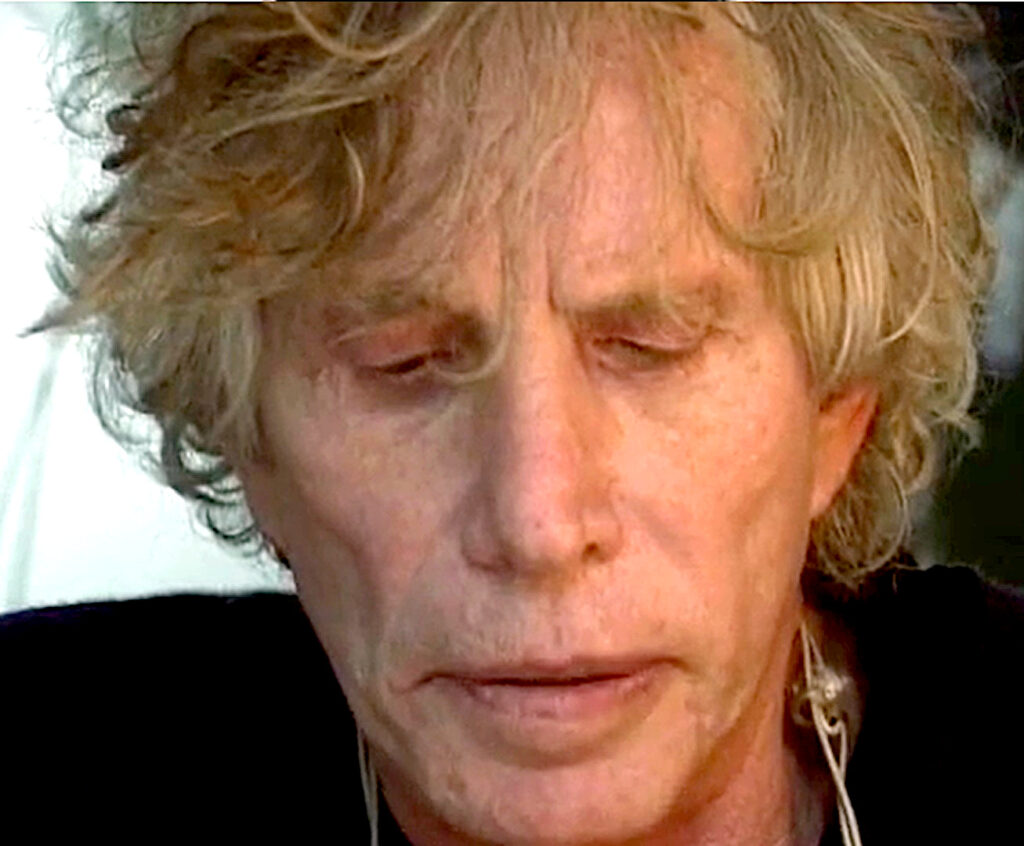
12. **Oppenheimer (2023)** After his monumental run with the MCU concluded with *Avengers: Endgame* in 2019, Robert Downey Jr. took a brief hiatus from major roles, making only two films before making another impressive and utterly transformative return to the big screen in Christopher Nolan’s epic biographical thriller, *Oppenheimer*. In this critically acclaimed film, Downey Jr. delivered an Oscar-winning performance as Lewis Strauss, the calculating and secretive adversary to J. Robert Oppenheimer.
Initially, Downey Jr. “might have seemed like an odd choice to play the calculating, secretive Lewis Strauss, the Salieri to Oppenheimer’s Mozart.” However, director Christopher Nolan’s visionary casting proved to be a stroke of genius. Downey Jr. expressed his gratitude to Nolan, stating that “A visionary filmmaker can see things that other people can’t see,” and calling *Oppenheimer* “probably the best movie I’ve ever been a part of.” He completely disappeared into the role, showcasing his chameleon-like gift for embodying vastly different characters.
His portrayal of Strauss, a complex figure driven by ambition and perceived slights, was a masterclass in understated intensity and simmering resentment. He commanded the screen, often through quiet manipulation and powerful monologues, drawing audiences into the intricate political and personal struggles surrounding the creation of the atomic bomb. This performance was widely lauded, demonstrating an incredible depth and gravitas, far removed from the bombastic heroism of Tony Stark.
*Oppenheimer* itself was a massive success, earning nearly a billion dollars and sweeping up awards, securing the most Oscar nominations of any film released in 2023, totaling 13. Among these was a well-deserved nomination for Downey Jr. for Best Supporting Actor, which he went on to win, marking his first Academy Award victory. This triumph completed his remarkable career arc, proving that even after global superstardom, his dedication to challenging, complex roles and his ability to deliver captivating performances remained as strong as ever.
Read more about: 15 Movies Ready to Rival Super Mario Bros.’ Huge Box Office
What an extraordinary journey it has been, tracing the indelible mark Robert Downey Jr. has left on cinematic history. From his earliest dramatic revelations to his unparalleled reign as a superhero and now an Oscar-winning dramatic force, his career is a testament to resilience, versatility, and sheer, undeniable talent. He has not only captivated audiences but has redefined what it means to be a Hollywood icon, constantly evolving and leaving us eagerly anticipating his next transformation, whether it’s returning to the MCU as Doctor Doom or venturing into entirely new territory. He is, quite simply, a cinematic legend. Indeed, what an incredible ride, and we can’t wait to see what brilliant performance he delivers next!



